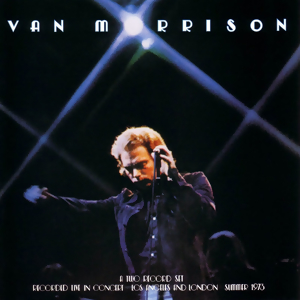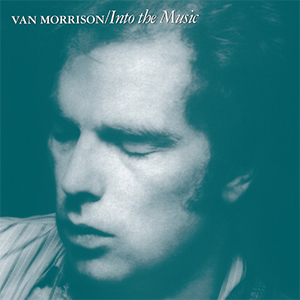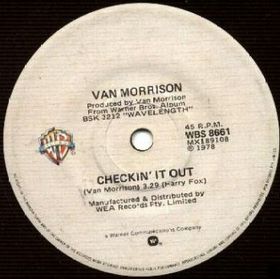
Peter Bardens was an English keyboardist and a founding member of the progressive rock group Camel. He played keyboards, sang, and wrote songs with Andrew Latimer. During his career, Bardens worked alongside Rod Stewart, Peter Green, Mick Fleetwood and Van Morrison. He recorded eleven solo albums.

Magic Time is the thirty-first studio album by Van Morrison, released in 2005 by Geffen Records. It debuted at No. 25 on the US Billboard charts and No. 3 in the UK - Morrison's best UK chart debut until Still on Top – The Greatest Hits opened at No. 2 in 2007. Rolling Stone ranked 'Magic Time' seventeenth on The Top 50 Records of 2005.

It's Too Late to Stop Now is a 1974 live double album by Northern Irish singer-songwriter Van Morrison. It features performances that were recorded in concerts at the Troubadour in Los Angeles, California, the Santa Monica Civic Auditorium, and the Rainbow in London, during Morrison's three-month tour with his eleven-piece band, the Caledonia Soul Orchestra, from May to July 1973. Frequently named as one of the best live albums ever, It's Too Late to Stop Now was recorded during what has often been said to be the singer's greatest phase as a live performer.

A Period of Transition is the ninth studio album by Northern Irish singer-songwriter Van Morrison, released in 1977. It was his first album in two-and-a-half years. At the time of its release it was received with some disappointment by critics and fans: "Most were hoping for a work of primeval vocal aggression that would challenge the emerging élite of Morrison pretenders, whose ranks included Bruce Springsteen, Bob Seger, Phil Lynott, Graham Parker and Elvis Costello." However, the album is still notable for several major compositions, including "Heavy Connection", "Flamingos Fly", "The Eternal Kansas City" and "Cold Wind in August".

Into the Music is the 11th studio album by Northern Irish singer-songwriter Van Morrison, and was released in August 1979. It includes "Bright Side of the Road", which peaked at number 63 on the UK Singles Chart, and other songs in which Morrison sought to return to his more profound and transcendent style after the pop-oriented Wavelength. The record received favourable reviews from several music critics and was named as one of the year's best albums in the Pazz & Jop critics' poll.

Common One is the twelfth studio album by Northern Irish singer-songwriter Van Morrison, released in 1980. The album was recorded over a nine-day period at Super Bear Studios, near Nice, on the French Riviera. Its title is in the lyrics of the song "Summertime in England": "Oh, my common one with the coat so old and the light in her head".

Beautiful Vision is the thirteenth studio album by Northern Irish singer-songwriter Van Morrison, released in February 1982. It continued Morrison's departure from R&B at the time, instead favoring Celtic folk and American jazz in its music. As with many of Morrison's recordings, spirituality is a major theme and some of the songs are based on the teachings of Alice Bailey. Other songs show Morrison's Celtic heritage and reminiscence of his Belfast background.

Poetic Champions Compose is the seventeenth studio album by Northern Irish singer-songwriter Van Morrison, released in 1987 on Mercury Records. It received generally positive reviews from critics, most of whom viewed it as adequate mood music.

Down the Road is the twenty-ninth studio album by Northern Irish singer Van Morrison. The album has a nostalgic tone, lyrically and musically, and its arrangements mix R&B and blues with country and folk, and, with a few exceptions, like "Georgia on My Mind," the music is most often rooted in 1950s and early 1960s popular music.

Days Like This is the twenty-third studio album by Northern Irish singer-songwriter Van Morrison, released in 1995. It is a diverse group of songs offering a variety of moods and styles. It ranked No. 5 on the UK album charts and was nominated for the Mercury Prize.

The Philosopher's Stone is a compilation album by Northern Irish singer-songwriter Van Morrison released in 1998.

"Bright Side of the Road" is a song written by Northern Irish singer-songwriter Van Morrison and included on his 1979 album Into the Music. It was also one of the outtakes that made up the 1998 compilation album, The Philosopher's Stone. As a single "Bright Side of the Road" was released in September 1979 and charted at No. 48 in the Netherlands, No. 63 in the UK and just outside the Billboard Hot 100 in the US at No. 110. In 2020, the song reached its highest radio airplay chart position in Ireland, peaking at #2.
"Listen to the Lion" is a song written by Northern Irish singer-songwriter Van Morrison and featured on his sixth album, Saint Dominic's Preview (1972). Its poetic musings and "bass-led shuffle" lead back to Astral Weeks territory.

"Real Real Gone" is a hit single written by Northern Irish singer-songwriter Van Morrison and included on his 1990 album Enlightenment. It has remained a popular live performance tune and Morrison has included it on the set lists at many of his concerts since releasing it.

"Wavelength" is the title song from the 1978 album by Northern Irish singer-songwriter Van Morrison. Released as a single in 1978, it climbed to number forty two in the US charts, and stayed in the Hot 100 for eleven weeks. According to Howard A. Dewitt, this "was the song which re-established Morrison's hit making abilities".
"Vanlose Stairway" is a song written by the Northern Irish singer-songwriter Van Morrison, and included on his 1982 album Beautiful Vision. It has remained a popular concert performance throughout Morrison's career and has become one of his most played songs.

"Perfect Fit" is a song written by Northern Irish singer-songwriter Van Morrison and included on his 1995 album, Days Like This.

Van Morrison in Ireland is the first official video by Northern Irish singer-songwriter Van Morrison, released in 1981 of a concert Morrison recorded in Northern Ireland in 1979. It was directed by Michael Radford who later became a noted filmmaker. The video includes footage of the band whilst touring in Ireland and images of Belfast, including Hyndford Street and Cyprus Avenue. Tony Stewart of the NME states, "The band display a range of textures reminiscent of The Caledonia Soul Orchestra, first with the dark resonance of Toni Marcus' violin, then Pat Kyle's bright sharp tenor sax and finally Bobby Tench's prickly electric guitar".
"You Make Me Feel So Free" is a song written by Irish singer-songwriter Van Morrison and recorded on his 1979 album, Into the Music.

Robert Tench was a British vocalist, guitarist, sideman, songwriter and arranger.

















